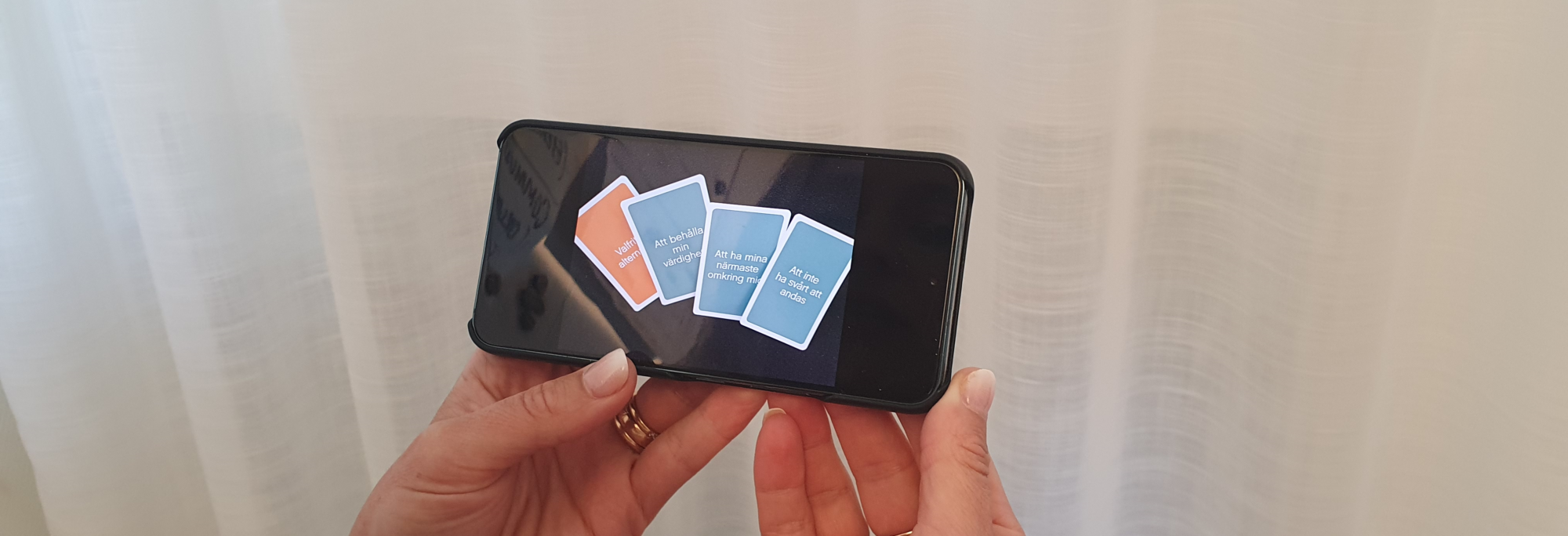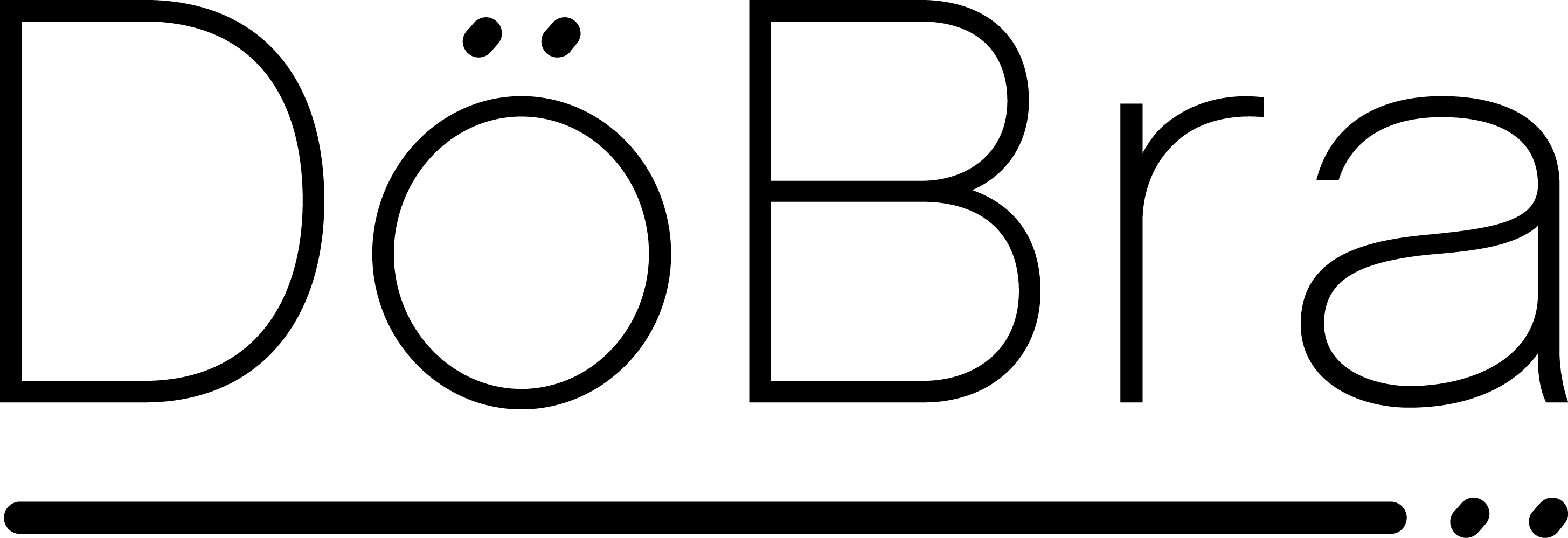Co-creating a digital tool to support early, proactive conversations about values and preferences for future end-of-life care

The aim of the project is to co-create and test a digital version of the existing end-of-life conversation tool, the DöBra cards, together with a wide range of community partners. This to further develop and investigate the promotion of early, proactive conversations and reflection on the end of life.
In previous projects within the DöBra research program, a conversation tool, the so-called DöBra cards, has been developed from an American model (GoWish cards), to support early conversations about things that may be important at the end of life. This so-called “paper version” of the DöBra card deck contains 37 statements about things that may be important at the end of life and can form the basis for further reflection and discussion. The paper version has been tested with good results in our previous studies with older, relatively healthy people in the general public, in elderly care, in a sample of Sami people of different ages and in a learning activity with nursing students.
In the design of this project, we take inspiration from participatory action research, i.e. research with rather than on or about people in a cyclic, iterative process. We collaborate with a range of community organizations to bring a broad palette of perspectives into the co-creative process. This to develop a digital tool that is as relevant and user-friendly as possible for a broad public in Sweden. See a list below of our partners that we are very happy to work with.
In the first studies of the project, we are exploring the process of co-creating the digital tool together with community partners representing potential end-users and a multidisciplinary research team. We want to study the adaptations needed to make the digital tool relevant to a broad Swedish public. In a later phase of the project, we will test the tool with about 50 individuals and about 30 caregivers, some of whom are affected by dementia, during an 8-week test period. The studies focus on whether and how the digital tool can support them in reflection and conversation about future end-of-life care, as well as increase preparation and coherence between individuals and family members for future end-of-life decision-making.
The project will result in a digital conversation and reflection tool with the potential to promote public preparedness to address issues around future end-of-life care. The project coincides with contemporary prevention and public health initiatives by working with community partners to support individuals and families to be active discussion partners in future end-of-life care.
Co-creative community partners
Dödsdoula
Esperanza kvinnoförening/S-Kvinnor
Kalix kommun – demensteam
Luleå kommun – äldresupporten
Piteå kommun – äldreomsorg
PRO – Pensionärernas riksorganisation
RFSL Luleå och norra Norrbotten
STR-T – Svenska Tornedalingars riksförbund
Project lead
Project manager: Malin Eneslätt, senior lecturer, Luleå University of Technology
Project collaborators: Charlèss Dupont, post-doc, Vrije Universiteit Brussels
Petter Fjällström, PhD student, Umeå university
Eva Savolainen, PhD student, Luleå University of Technology
Scientific reference group
Ida Goliath, associate professor, Äldrecentrum
Max Kleijberg, post-doc, Karolinska Institutet
Sabine Koch, professor, Karolinska Institutet
Lena Kroik, project manager, Glesbygdsmedicinskt centrum
Jessica Körning-Ljungberg, professor, Luleå University of Technology
Carol Tishelman, professor, Karolinska Institutet
Lieve Van den Block, professor, Vrije Universiteit Brussels
Financing
This project is financed by FORTE Establishment grant 2024-2026.
Support funding has also been granted from:
PRECISE at Luleå University of Technology
